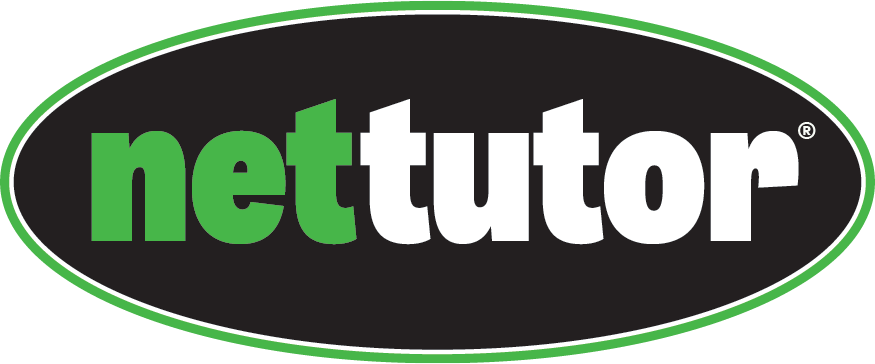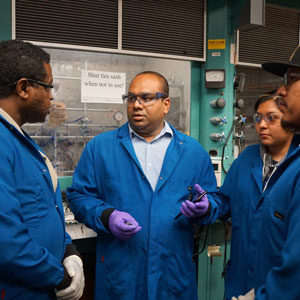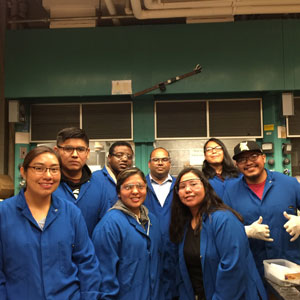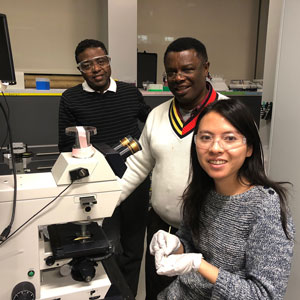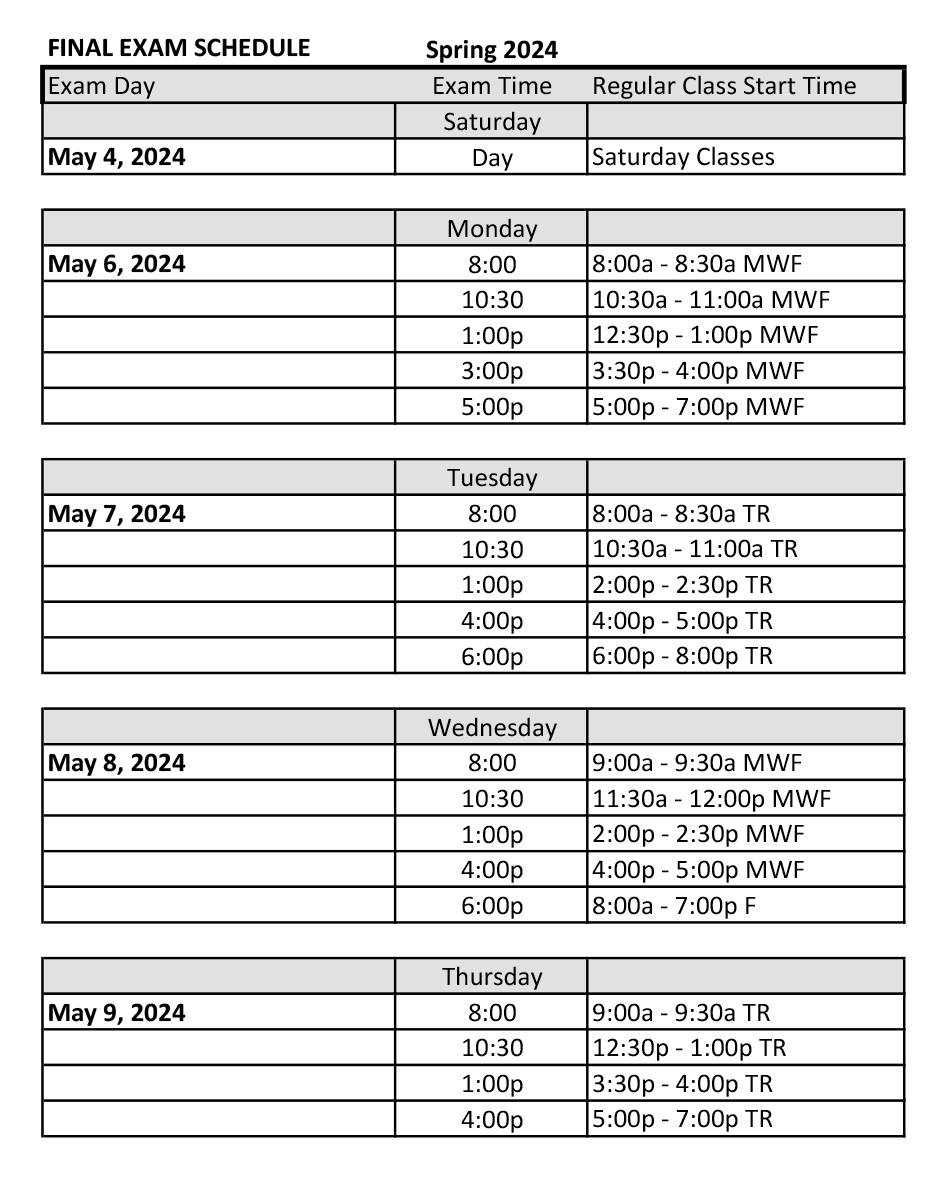Academics
At Navajo Technical University, we aim to provide comprehensive resources to support your academic journey. Whether you're exploring undergraduate or graduate programs, our catalogs serve as invaluable guides outlining the courses, requirements, and opportunities available to you.
Please select the catalog that aligns with your academic pursuits:
Undergraduate CatalogFor those seeking information on our bachelor's degree programs, prerequisites, and undergraduate academic policies. |
Graduate CatalogFor students interested in pursuing advanced studies, detailing our master's degree programs, admission criteria, and graduate-level academic guidelines. |
We encourage you to delve into these catalogs to discover the wealth of knowledge and opportunities that NTU has to offer. Should you need any further assistance or guidance, our academic advisors and support staff are here to assist you.
Best wishes on your academic journey!
Welcome to Resources for NTU's GenEd Program
The resources here are designed to promote optimum student learning and program coordination across all aspects of NTU's General Education Program.
GenEd Program
- Profile
GenEd Core Curriculum Requirements
- New Mexico Requirements
- AA/AS GenEd Reguirements
- AAS Requirements
- Certificate
- Arizona Requirements
- AA/AS GenEd Reguirements
- AAS Requirements
- Certificate
- NTU Requirements
- AZ or NM Requirements
- College Success Requirement
- Diné/Zuni Studies Requirements
- Wellness Requirement
- Co-Curricular Opportunities
GenEd Committee
- AY22 Minutes
- Apr 29 2022
- Mar 4 2022
- Feb 11 2022
- Jan 21 2022
- Jan 3 2022
- Dec 2 2021
- Nov 4 2021
GenEd Curriculum
- Changes to the Common Course Numbering System Process
- Add a Course Form
- Modify an Existing Course Form
- Remove an Existing Course Form
- Change Student Learning Outcomes Form
- Course Certification
- Process Description
- Certification Form
- Course Certification Instructions
GenEd Courses (course profiles)
- Communications Requirement
- COMM 1130 Public Speaking
- COMM 2120 Interpersonal Communication
- ENGL 1110 Comp
- ENGL 1120 Comp II
- ENGL 1210 Technical Communications
- ENGL 2120 Intermediate Comp
- ENGL 2210 Prof & Technical Communication
- Creative and Fine Arts Requirement
- ARTS 1110 Arts & Design Survey
- ENGL 2310 Intro to Creative Writing
- ENGL 2320 Intro to Fiction Writing
- ENGL 2330 Intro to Poetry Writing
- ENGL 2340 Intro to Creative Nonfiction Writing
- NAVA 1210 Native Cultural Arts
- NAVA 1310 Navajo Weaving I
- NAVA 1320 Navajo Weaving II
- NAVA 1330 Navajo Weaving III
- Diné/Zuni Studies Requirement
- NAVA 1110 Navajo I
- NAVA 1120 Navajo II
- NAVA 2210 Navajo Culture
- NAVA 2220 Navajo History
- NAVA 2230 Navajo Government
- NAVA 2240 Navajo Philosophy
- ZUNI 1110 Introduction to Zuni
- Humanities Requirement
- ENGL 1410 Intro to Literature
- ENGL 2310 Introduction to Journalism
- ENGL 2560 Intro to Native American Literature
- ENGL 2650 World Literature
- ENGL 2567 Contemporary Navajo Literature
- FDMA 2175 International Cinema
- HIST 1110 United States History I
- HIST 1120 United States History II
- HIST 2150 History of the American Southwest
- HUMN The History of American Indians in Media
- NAVA 1110 Navajo I
- NAVA 2210 Navajo Culture
- NAVA 2220 Navajo History
- PHED 1620 Fitness
- PHED 1830 Running
- Mathematics Requirement
- MATH 1220 College Algebra
- MATH 1230 Trigonometry
- MATH 1240 Pre-Calculus
- MATH 1350 Intro to Statistics
- MATH 1510 Calculus I
- MATH 1520 Calculus II
- Physical and Natural Sciences Requirement
- ASTR 1010C Intro to Solar System Astro
- ASTR 1110C Intro to Stellar & Galactic Astro
- BIOL 1110C Gen Biology
- BIOL 2110C Principles of Biology: Cellular and Molecular Biology
- BIOL 2120C Cellular & Molecular Biology
- BIOL 1310C Intro to Human Anatomy & Physiology I
- BIOL 1320C Intro to Human Anatomy & Physiology II
- BIOL 2310C Microbiology
- BIOL 2630C General Botany
- CHEM 1120 Intro to Chem
- CHEM 1217C Principles of Chem
- CHEM 1225C General Chem II for STEM Majors
- ENVS 1110C Enviro Science I
- ENVS 1120C Enviro Science II
- GEOL 1110C Phys Geo
- GEOL 1120C Enviro Geo
- PHYS 1115C Survey of Physics
- PHYS 1230C Algebra-based Physics I
- PHYS 1240C Algebra-based Physics II
- PHYS 1310C Calculus-based Physics I
- PHYS 1320C Calculus-based Physics II
- Social and Behavioral Sciences
- BUSA 2420 Tribal Law
- CJUS 1110 Intro to Criminal Justice
- ECON 1110 Survey of Economics
- ECON 2110 Macroeconomics Principles
- ECON 2120 Microeconomics Principles
- PSYC 1110 Intro to Psychology
- PSYC 2120 Developmental Psychology
- SOCI 1110 Intro to Sociology
- SOCI 2310 Contemporary Social Problems
- Student Success
- BCIS 1115 Intro to Computers
- SSC 100 College Success Skills
- Wellness
- PHED 1620 Fitness
- PHED 1830 Running
GenEd Coordination
- Coordination Framework
- Curriculum Committee
- Provost's Leadership Team
- Student Learning Committee
Are you a Dual Credit student taking an Online or Hybrid course? Below is information to help you get started and tips to be a successful online learner.
NTU Student Orientation
- Student Online Orientation - This student orientation provides students with information about the many resources available at Navajo Technical University (NTU). Students learn about student services, special programs, and other student support programs. The orientation is available online and is mandatory for all students required to complete the Registration Online process. You will receive a certification of completion for finishing the online orientation. The online orientation takes about 20-40 minutes to complete. If you run out of time, you can always return to access to complete or obtain any information.
- Student Online Orientation - This student orientation provides students with information about the many resources available at Navajo Technical University (NTU). Students learn about student services, special programs, and other student support programs. The orientation is available online and is mandatory for all students required to complete the Registration Online process. You will receive a certification of completion for finishing the online orientation. The online orientation takes about 20-40 minutes to complete. If you run out of time, you can always return to access to complete or obtain any information.
- Blackboard Ultra STUDENT ORIENTATION COURSE - Under ‘Course’, you will see a course called: "Blackboard Ultra Orientation”. For Students: This course will expose you to various Blackboard Ultra features that you will encounter during your use of this learning management system. This course will remain available for you to consult later on if you would like to look back at any of the resources or practice with activities.
- How to Log into SSO Account
- Go to www.navajotech.edu, Click on the "SSO Login" link at the top bar or main NTU webpage.
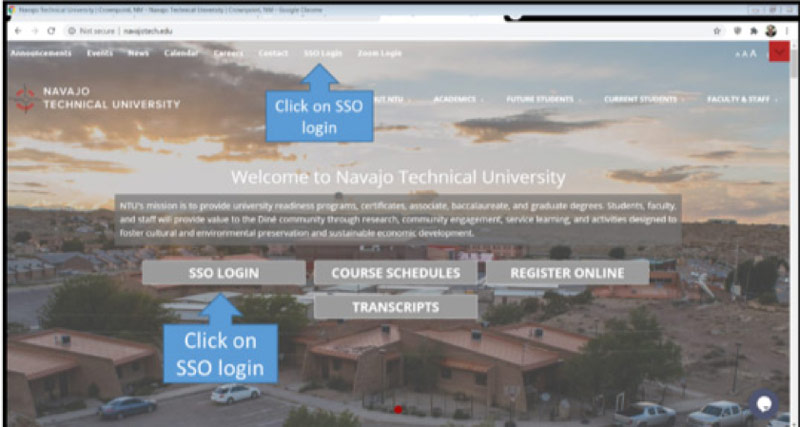
- Enter your NTU username and password. (Note: IT department creates an account. If you do not have an SSO account, email its@navajotech.edu).
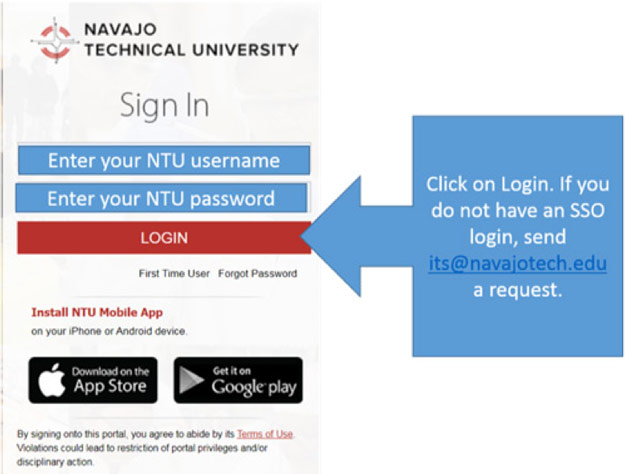
- Once you successfully login, the SSO page should appear. Click on Blackboard Ultra to find your courses.
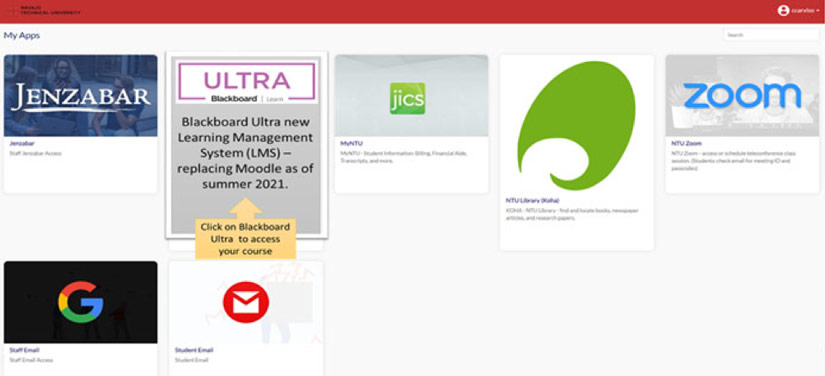
- Begin navigating your courses.
Another option - How to log into Blackboard Ultra
- Go to https://navajotech.edu.blackboard.com/
- Click on the "Login" link at the top bar
- Use your NTU ID and Password
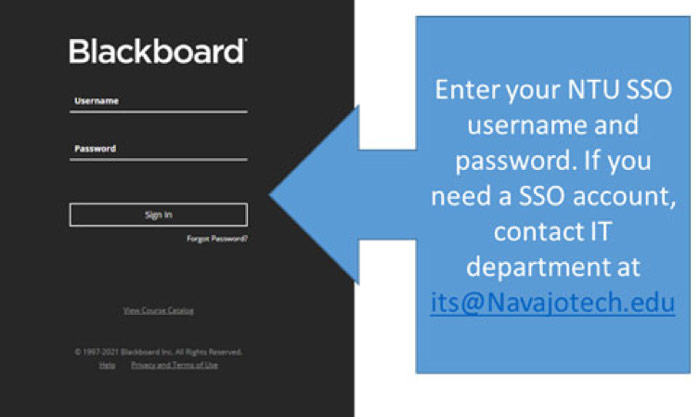
You should now be logged in. If you got a login error, please double-check your password and NTU ID. If you cannot log in to Blackboard Ultra, please click on Forgot Password to reset your password. Check your email to retrieve your password. Your courses are located under "Courses" on the left column, you may need to scroll down if you do not see your course. You will not see any listings if you are not enrolled in any courses.
- You need a reliable computer, a strong internet connection, and the best platform to meet your needs. Blackboard Ultra and Collaborate Ultra requires a modern web browser with WebRTC support. WebRTC (Web Real-Time Communication) is a free, open-source project providing web browsers and mobile applications with real-time communication (RTC) via simple application programming interfaces (APIs).
- Set up a workspace. If possible, this space should be intended for school work only. You want this space to be friendly and inviting, but also encourage productive work behavior. Keep your work environment free of distractions like television, other family members, or household chores. Natural lighting and an ergonomic chair can go a long way in setting up your ideal work environment.
Online courses offered
See a complete list of the NTU degree and certificates you can earn online or on-campus, an online course listing, and course schedule.
Before your course begins
- If you do not have a Single-Sign-On (SSO) account which give you access to NTU email, MyNTU, and Blackboard Ultra, send an email to the IT department (its@navajotech.edu). The IT department creates the SSO account.
- Check your computer requirements.
- Go to https://navajotech.blackboard.com and log in with your NTU Skyhawk Email.
- Contact Technical Support if you have questions at NTU IT Helpdesk.
- Help with common problems can be found at: Student E-Learning Resources.
- Instructions to add a photo to your course profile can be found at:
- New to online learning? NTU Online Student Policies and Procedures can help you navigate.
- Is online learning for you? Online Learning requires computer skills, communication skills, and to be a motivated self-starter. Complete the online readiness for online learning by filling out the following assessment to get a good idea of your readiness, NTU Online Learning Readiness Quiz (refer to step 1).
- You must have dedicated access to a computer that connects to the Internet loaded with a web browser (i.e. Mozilla Firefox, Safari, Google Chrome and Internet Explorer/Microsoft Edge) and Office Suite.
- Read the E-Learning Tips for success on how to be a successful online learner.
- Ensure you attend your online courses weekly. Refer to the online attendance policy. Online students need to login into their Learning Management System (LMS) at least 3-4 times a week.
- Do your own work. Refer to the E-Learning Student policies for more information.
Attend the first day of class
- Go to: https://navajotech.blackboard.com/, log on to Blackboard Ultra using your Skyhawk ID and Password, and begin working.
- Obtain your textbooks; most are available at the NTU Bookstore or through our new Online Bookstore (starting Fall 2021). The NTU website will have more information on how to purchase and access your online book in August. Access to the Online Bookstore will also be available through the SSO. Refer to your syllabus for book information.
- Check your email from your professor for information and course plans for the semester. If you don’t receive a message from your professor, email them, and ask what necessary steps I take to keep current in the course.
- Review the Online Student Support Resources at URL http://www.navajotech.edu/online-student-learning-support.
- Online courses follow the NTU academic calendar. It is essential to begin working within your course on the first day of instruction.
- Additional information about Blackboard Ultra can be found below and at: Student E-Learning. Online Learning Transition for Students - Moving Online. This guide provides you with the key actions and resources to help you make the shift to online learning as quickly and seamlessly as possible. Login to your NTU SSO login to access Email, Blackboard Ultra, and complete the following task on the first day of online learning for each of your courses.
- Ask questions if you are not sure and get the support you need. All our information is shared on our NTU webpage and on Facebook.
- Let us know if you need help or support. Email Dr. Coleen Arviso at ccarviso@navajotech.edu or IT department at its@navajotech.edu.
College is different from high school
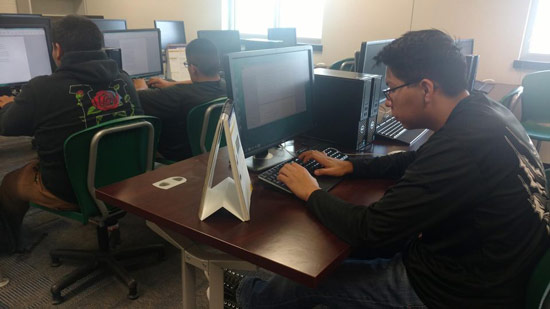
A high school student having the opportunity to take a college class is a positive experience that helps many young people grow as learners and realize their ambition of completing a college degree. But high school students taking NTU dual credit courses must understand the differences between high school and college.
| High School | In College |
|---|---|
| High school is mandatory and usually free | College is voluntary and tuition plus fees are associated with programs. Benefits, Dual Credit courses are free to the student – all tuition, books, and general fees are waived for participating high schools. The High Schools participating can be found on the Dual Credit Program. |
| Student can count on teachers to remind them of responsibilities and to guide them in setting priorities. | Students balance responsibilities and set priorities on their own. High school students need to be ready to take an online course. Complete the Online Learning Readiness Questionnaire help determine what you need to do to success in online learning. |
| Students are usually told in class what they need to learn from assigned readings. | It's up to the students to read and understand the assigned material. Students enrolled in an Online or Hybrid course need to check their syllabus, Blackboard, or the learning platforms the professor is using to get assignments and due dates. Check your Skyhawk email for information from your professor. If you are not sure, email your professor using your skyhawk email. Getting your NTU SSO login, contacting your professors and tips for online learning success are key to a successful semester. |
| Teachers often take time to remind students of assignments and due dates. | Professors expect students to read, save, and consult the course syllabus (outline); the syllabus spells out exactly what is expected of the student, when it is due, and how it will be graded. Also, logging into Blackboard for coursework and due dates. |
| Teachers carefully monitor class attendance. | Attendance in Online Courses is mandatory just as face-to-face courses. Online students need to login into their Learning Management System (LMS) at least 3-4 times a week. Please refer to your online professor’s course requirements and specifications and to ensure you are actively participating in your online course. Attendance will be tracked through the online student management system by the professor. Attendance will incorporate completion of course requirements, participation in completing course assignments and interactions with professor. If it determined that the student is not meeting attendance policy requirements set forth by NTU Catalog and the professor of the course, the following steps will instituted. |
Online study is different; set a schedule
- Online students are expected to learn mainly by engaging with online materials, supplementary resources and the completion of assessed work.
- Most college professors teaching online classes don't hold real-time online courses.
- Hybrid courses may use Zoom or some sort of communication interface.
- Make a study plan stay on track with coursework.
- Organize and set a certain amount of hours per day or week to set aside to focus on completing coursework.
- Manage your time carefully to set dedicated study time each day.
What can students do to make sure they succeed in online classes?
Taking an online college class requires students to take on a great deal of responsibility for their own learning. Being successful depends on:
- Planning study time
- Making sure you have access to the right technology. Contact the Information Technology (IT) department to get an NTU SSO account.
- Making time to read the materials and take notes
- STUDY TIME INFORMATION:
Study Time Outside of Class for Face-to-Face Courses
For every credit hour spent in a class, a student is expected to spend two hours (2) outside of class studying the course materials.
Study Time for Hybrid or Blended Courses
For a hybrid or blended course of one (1) credit hour, a student is expected to spend three (3) hours per week studying the course materials.
Study Time for Online Courses For an online course of one (1) credit hour, a student is expected to spend four hours (4) per week studying the course materials.
- STUDY TIME INFORMATION:
- Knowing where to go for help - Online Tutoring, Online Student Learning Support, Online Learning Transition, Online Orientation, Dual Credit Program, How to log into SSO Account, & Student E-Learning Resources.
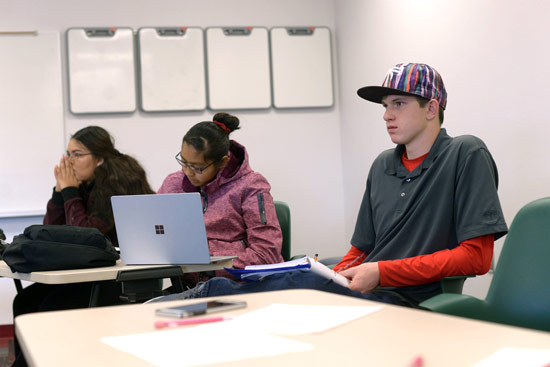
What you can expect of Professors?
Every online class has a professor who is available to:
- Answer your questions about the course content
- Grade your assignments
- Help you succeed in the course
Find out more about when to contact your professor and how to reach out to them and the NTU Faculty contact information.
How can you help as a parent?
- Understand school during this period is not easy for professors, students or parents.
- Help keep students on track – if your son or daughter is studying an 16-week class, and they need to be spending 4- 6 hours per week on that class, ask them how have they planned that time and how can you help them stick to that plan.
- Students have full access to all NTU’s Student Services including library, technology support, tutoring services and Online Learning Transition for Students - Moving Online.
Support success by asking your child questions like: What assignments are you looking forward to completing this week? Or: Tell me something new you learned today.
Online tools and resources
- Whether you are taking classes online or in person, it is important you know how to log in to the Blackboard Ultra portal and access your class..
- Review the E-learning Support Resource page.
- First Day of Online Learning is also available online.
- For login assistance or tech support, contact IT department by email at its@navajotech.edu.
- Make sure you can access your NTU Skyhawk email and read all communication from your professor.
- Prepare for future instruction through the E-Learning Support page by visiting the Tutorials.
- Your professor will provide you with a syllabus and clear deadlines for completing your coursework each week. To succeed in your classes, prepare to meet these deadlines and log in to your course site at least once every 48 hours.
- It would be best to spend between eight to 4-6 hours each week for each course you have enrolled.
- Need more help? NTU offers a variety of resources for our students. Contact your Dual Credit Office if you need more assistance.
Technical Assistance:
- For Course Support: refer to your Blackboard Ultra course for contact information at Blackboard Ultra.
- For additional Technical Support call (505) 786-4208 Monday – Friday from 8:00 am to 5:00 pm or email: its@navajotech.edu.
- For online technical support, go to http://www.navajotech.edu/about/it-dept.
Helpful Student Videos
- How to access your Student Email
- How to access MyNTU
- How to Check Your Internet Connection
- Designate Specific Times & Study Space
What are the different meeting types or modes of course delivery?
Meeting Types:
Web-Enhanced course is a traditional course offered face-to-face using Blackboard or some type of learning management system or web presence to enhance the course.
Hybrid-blended (HYB) course is half face-to-face and the other half involves using Blackboard or some type of learning management system or web presence to enhance the course.
Online course (ONL) is offered fully online using Blackboard or some type of learning management system or web presence to enhance the course. You will need to contact your instructor if they are using a different LMS besides Blackboard.
Face-to-Face course is a traditional course that will not use technology in the classroom.
Additional Questions about your Online Course:
Coleen Arviso, Ph.D.
Director of E-Learning
Navajo Technical University
Email: ccarviso@navajotech.edu
Text Cell: (505) 728-7069 [Ensure you include your full name, course name, and number, a meaningful and clear message - example: Jane Miller, Spring 2021 - need help accessing SP21 SSC 100 ONL College Success Course in Blackboard]
NetTutor Online Tutoring
The E-Learning department strongly recommends our students use the free tutoring service that NTU offers. The service is called NetTutor. Online math tutoring is available 24 hours a day, every day of the week. Writing assignments can be submitted 24 hours a day, every day of the week. All writing submissions to NetTutor will maintain a 48 hour turnaround time. All other subjects will follow the NetTutor subject hours for the semester.
Free, Online Tutoring with NetTutor
Live Online Tutoring
To access online tutoring, go to Blackboard Ultra and login
Get tutoring services from anywhere! All Navajo Technical University (NTU) tutoring services will be online for Summer 2021, Summer Intersession, Fall 2021, and Spring 2021. Follow the links below to access tutoring in the various subject areas.
Once you successfully log into Blackboard Ultra, select 'Tools" and click on NetTutor Online Tutoring (NTU) to start a session.
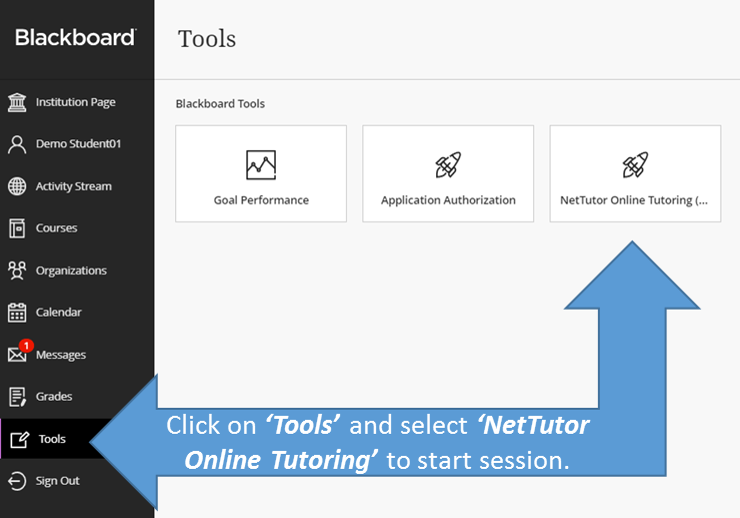
NetTutor Services
NTU also provides students free access to NetTutor, which offers tutoring outside of normal business hours. Receive live tutoring from a tutor who is qualified to help you in a specific course subject. Tutoring for all levels of English Composition and Math is available 24 hours a day, every day.
Available Subjects
- Math and Statistics
- Writing and English
- Nursing and Allied Health
- Computer Science
- Psychology
- Sociology
- Political Science
- Criminology
- Anthropology
- History
- Philosophy
- Science (including Astronomy, Biology, Chemistry, Geology, and Physics)
- Business (including Accounting, Economics, and Finance)
Question Drop-Off:
Submit a question and come back later for tutor feedback. Question responses are typically returned within one day.
How to Get Started
For Access to Free Online Tutoring:
- Go to https://navajotech.blackboard.com/ or your SSO login.
- Click on the “Login” link at the top right bar
- Use your NTU ID and Password to login. NetTutor is located under ‘Tools’ on the main left page, you may need to scroll down if you do not see your Tools.
- Click on ‘Tools’, and you should see the link to NetTutor Online Tutoring (NTU).
- Click on ‘NetTutor Online Tutoring (NTU)’ to activate and start the session.
IMPORTANT NOTE: When you first activate NetTutor, you will see an ‘End User License Agreement’, click on the green button “I Agree” to activate your tutoring session. You will only do this one time only.
NetTutor Paper Center and Live Writing Tutor
Receive writing assistance by selecting "NetTutor Paper Center and Live Writing Tutor" from the list of subjects after logging in to NetTutor. Types of tutoring available through the Online Writing Center:
- Meet with a Tutor in a Live Session - Live 1-to-1 Help (Receive assistance from a live tutor right now)
- Ask a Tutor a Question (Leave your question and receive a response within 24 hours)
- NetTutor Drop off Your Paper for Review (Upload your paper and get it reviewed within 48 hours)
- Your paper needs to be double spaced.
- Save your paper as a PDF document.
- You will receive an email notifying you when your paper is ready to be picked up.
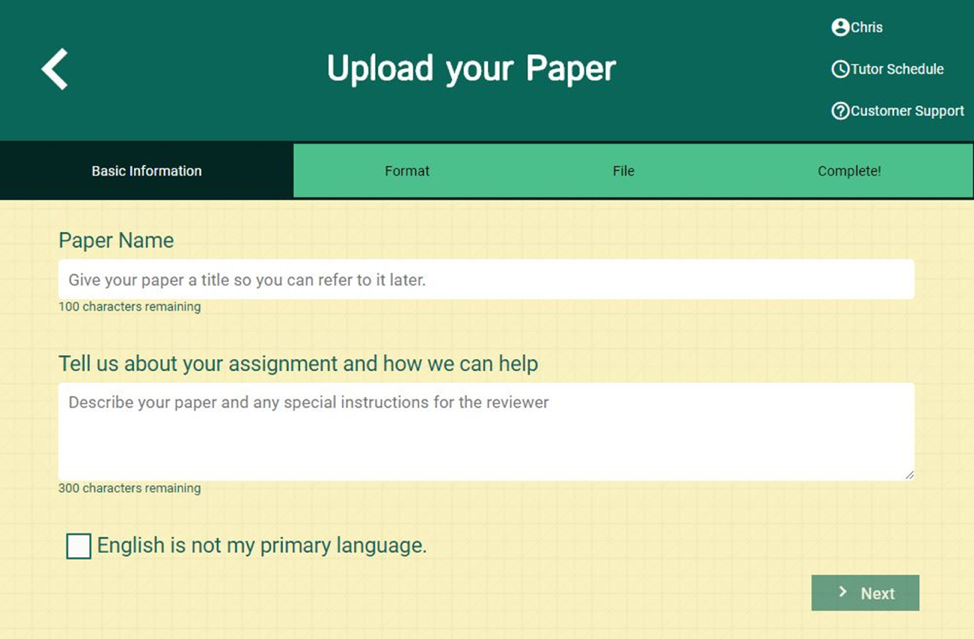
Information for Faculty
NetTutor Intro Video: This video is a brief overview of NetTutor.
NetTutor — Faculty Video: This video is geared towards faculty and gives a comprehensive overview of NetTutor (this link allows you to view as well as download the video).
Information for Students
Helpful Information
- How to use NetTutor
- How to Use the Tools on the Whiteboard
- Upload Your Homework To Your Tutoring Session
- NetTutor Best Practices
- 24/7 Online Tutoring(Net Tutor) and Whiteboard Collaboration Tool
- NetTutor Student User Guide
- Online Tutoring Accessibility Overview
- Submitting a Paper to NetTutor
Questions about NetTutor
For questions about NetTutor or other tutoring services at NTU, contact Dr. Coleen Arviso, E-Learning Director, at ccarviso@navajotech.edu.
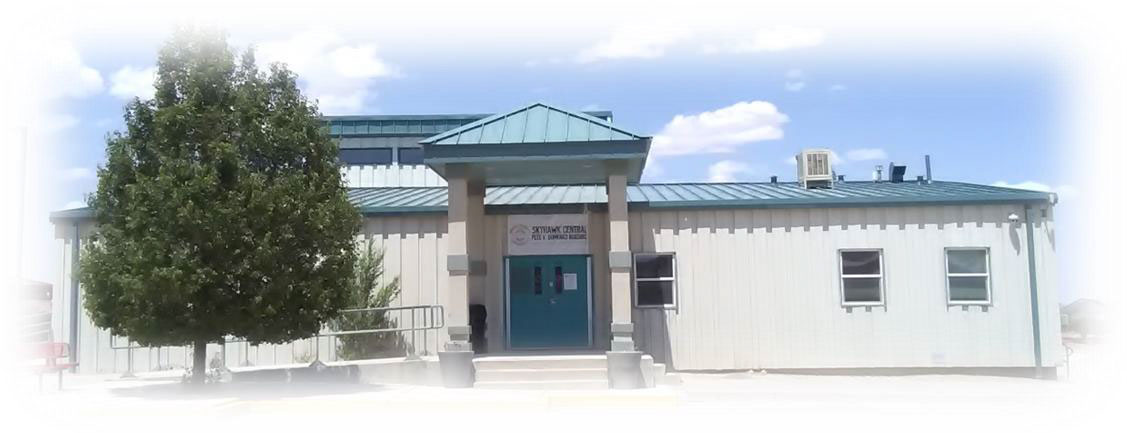
Skyhawk Central COVID-19 Guidelines
To help promote a healthy and safe environment, NTU has established the following protocols for all students, prospective students, and visitors while on campus conducting business at the Sky Hawk Central (Admission, Registration, Financial Aid, and Advisement offices). These guidelines are based on information obtained from the Centers for Disease Control and Prevention (CDC), The New Mexico Department of Public Health and Environment, and the New Mexico Higher Education Department. The protocols defined in the attached document are expected to be followed without exception.
The Enrollment Services department supports NTU’s Mission by providing support, services, and essential infrastructure for attracting, enrolling, retaining and graduating students.
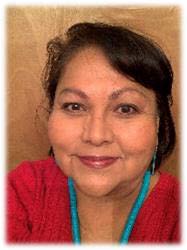 Ya’ateeh. Welcome to the NTU Enrollment Services department.
Ya’ateeh. Welcome to the NTU Enrollment Services department.
Delores Becenti, Director of Enrollment. Oversight of the Enrollment Services department.
Contact Information: dbecenti@navajotech.edu
505.387.7404
REGISTRAR'S OFFICE
The Registrar processes registration requests, schedules classes and maintains class lists, enforces the rules for entering or leaving classes, and keeps a permanent record of grades and marks.
Functions:
- Evaluates transcripts for transfer students
- Processes student course registration
- Schedules classes with academic Deans
- Determines students’ academic standing.
- Informs and refers students on probation and suspension.
- Oversees and maintains permanent record of students (i.e. grades, graduation petitions, appeals, etc.) per FERPA.
- Reviews graduation petitions and identifies candidates.
- Chairs the NTU Undergraduate Catalog committee.
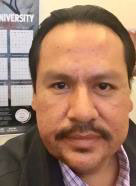 Kelly Chiquito,
Kelly Chiquito,
Registrar
Email: kchiquito@navajotech.edu
Phone: 505.387.7426
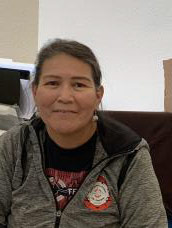 Renee Damon, Registrar Assistant
Renee Damon, Registrar Assistant
Email: rdamon@navajotech.edu
Phone: 505.387.7475
Howard Kayaani, Registrar Assistant (Chinle Campus)
Email: hkayaani@navajotech.edu
Phone: 928.882.3134
ADMISSION'S OFFICE
The Admission staff processes admission applications for the undergraduate, graduate, dual credit, and continuing education programs.
Functions:
- Reviews and processes all incoming applications
- (Walk-In and *Online) with required documents (CIB, HS Transcript, etc.)
- Provides admission letters
- Refers incoming students to proper academic advisors and program advisors.
- Assists with Accuplacer Testing
- Enforces FERPA
- Maintains admission record of students.
- Assists instructional site with admission process.
- Issue staff, faculty, and student NTU Identification Cards.
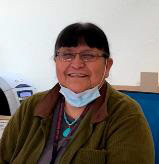 Thelma Johnson, Admission Assistant
Thelma Johnson, Admission Assistant
Email: t.johnson@navajotech.edu
505.387.7365
Jacqueline Begay, Admission Officer (Chinle Campus)
Email: jnbegay@navajotech.edu
Phone: 928.882.3143
Laura Leekela, Student Services Assistant (Zuni Site)
Email: laura.leekela@ashiwi.org
Phone: 505.782.6020
DUAL CREDIT PROGRAM
The Dual Credit program is a program that provides high school students with an opportunity to take college level courses while still in high school.
Functions:
- Coordinates with high schools to offer college level courses, which may be academic or career technical, but does not include remedial or developmental courses.
- Serves the Navajo Nation and surrounding schools including outside communities who take advantage of the program thru distance learning options.
- Offers a Summer STEM & Skills program every summer with the financial support of grants thru the Engineering Department to provide college experience.
- Submission of reports and invoice at the end of each semester to New Mexico and Arizona.
- Coordinate with Recruiter and Admission Office for DC students’ matriculation as an undergraduate student at NTU.
Contact NTU Registrar's Office:
Kelly Chiquito
k.chiquito@navajotech.edu
505.387.7426
OR
Dr. Delores Becenti
d.becenti@navajotech.edu
505.387.7404
FINANCIAL AID OFFICE
The office of Financial Aid Office assists students and their families by providing appropriate financial resources through scholarships and grants, and other aid for all qualified current and prospective students.
Functions:
- Assists students to complete FAFSA, NN Scholarship, and other financial aid forms.
- Provide information to students on their financial aid status.
- Review, determine eligibility, and award students according to appropriate funding policy, rules, and regulations (i.e. Department of Education, Navajo Nation, New Mexico, etc.)
- Conduct financial aid workshops to potential, new, and continuing students and their families.
- Coordinate with Finance Office regarding processing and awarding of students.
- Submission of reports as required per funding agency
 Gary Segay,
Gary Segay,
Financial Aid Manager
Email: gsegay@navajotech.edu
Phone: 505.387.7428
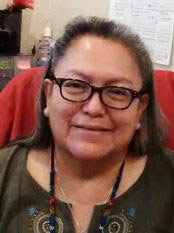 Rena Tom, Financial Aid Assistant
Rena Tom, Financial Aid Assistant
Email: rtom@navajotech.edu
Phone: 505.387.7417
Judy Yazzie, Financial Aid Assistant (Chinle Campus)
Email: jyazzie@navajotech.edu
Phone: 928.882.3137
RECRUITMENT & RETENTION
The Recruitment Office provides
- Advocate on behalf of Navajo Technical University (NTU) by sharing what NTU has to offer.
- Coordinate with Chinle Campus Recruiter – Jarvis Draper
- Attend community events and activities to inform the public on NTU Masters, Bachelors, Associate and Certificate programs, student services, residential services, transportation, childcare and more.
- Assist academic and program advisors with student retention activities.
- Coordinate with internal departments to develop recruitment and retention plans.
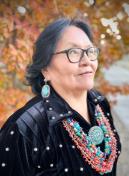 Brenda Yazzie,
Brenda Yazzie,
Campus Recruiter
Email: b.yazzie@navajotech.edu
Phone: 505.387.7427
Jarvis Draper, Chinle Campus Recruiter
Email: jdraper@navajotech.edu
Phone: 928.882.3155
Events & Activities
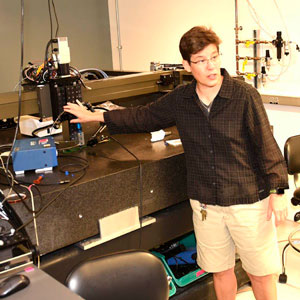 August 8, 2018 |
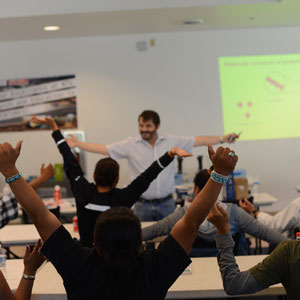 September 27-28, 2018 |
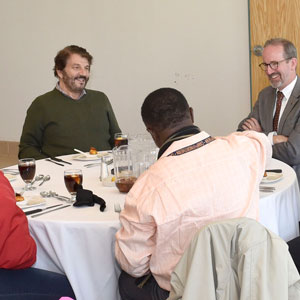 November 14, 2018 |
| The Harvard team visits Navajo Tech to kick off the collaboration Agenda and photos |
||
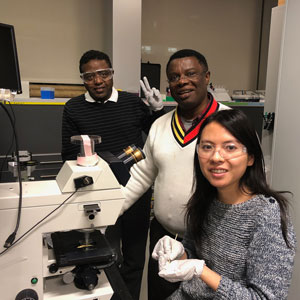 November 26-30, 2018 |
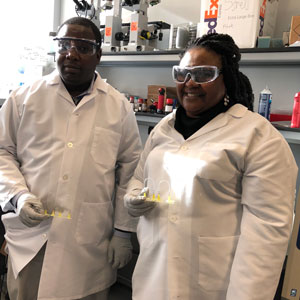 March 25, 2019 |
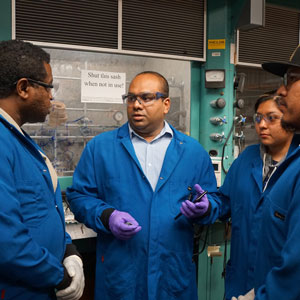 June 20, 2019 |
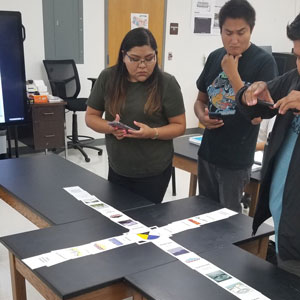 in Physics Class August 22, 2019 |
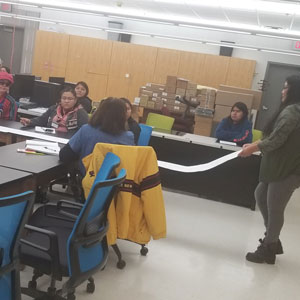 in Physics Class December 5, 2019 |
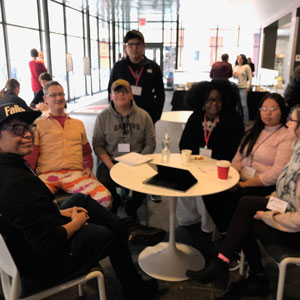 Complex Fluid Workshop December 6, 2019 |
Affiliated Staff
| Melanie A. Herbert Chemistry Laboratory Technician Email: mherbert@navajotech.edu B.S., Chemistry, New Mexico State University |
|
| Dr. Kathryn Hollar Director of Community Engagement and Diversity Outreach Email: hollar@seas.harvard.edu Ph.D., Chemical and Biomolecular Engineering, Cornell University |
|
| Sara Wenzel Education Outreach Programs Coordinator Email: swenzel@seas.harvard.edu B.A., Art History, Boston University |
Undergraduate Participants
| Kyra Capitan (Biology) Kyra is a rising sophomore at Navajo Technical University who is majoring in Biology and planning to pursue a Doctor degree in Veterinary Medicine. In their free time, Kyra also enjoys riding horses. |
|
| Jonathan Chinana (Electrical Engineering) Jonathan is a first-generation student at Navajo Technical University. He is pursuing a Bachelor's degree in Electrical Engineering and is in his sophomore year. Jonathan likes speaking in the third person, he doesn't like boring conversations. He loves playing pool while listening to Tool. |
|
| Michael Nelwood Michael Nelwood is a student at Navajo Technical University majoring in Biology. Project: Electrochemical Detection Using Paper or Thread Diagnostics |
|
| Joshua Platero (Biology) Joshua is a Navajo from Crownpoint NM. He is a junior in the biology program at Navajo Technical University. He has two kids and has been married for 8 years. Upon graduating, he wants to continue his education and receive a doctorate degree in physical therapy. |
|
| Breanna Thompson (Biology) Breanna was born and raised on the Navajo Nation in Crownpoint, NM. She is a continuing student at Navajo Technical University in the Biology program. Her goals are to continue her career past graduate school, ultimately gaining all the experience she can in order to bring it back to better her community. In her free time she like to spend time with friends and family, cook, go out, travel, read and relax. |
|
| Robinson Tom (Biology) |
ALUMNI
| Apryl Begay (Animal Sciences) Apryl is from Crownpoint, NM. She was raised with animals all her life and her major is Animal Science. She wants to go to Veterinary School and give back to the Navajo Nation. Project: |
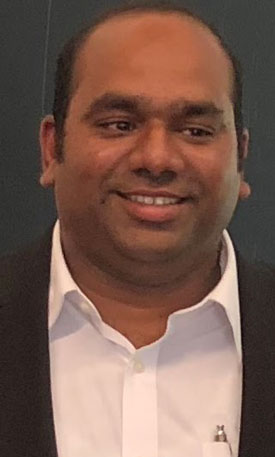 |
Dr. Thiagarajan Soundappan Associate Professor of Chemistry / Chair for School of Science Email: tsoundappan@navajotech.edu Phone: 505.786.4306 Ph.D. Electrochemistry (Eng), National Taipei University of Technology, Taipei, Taiwan M.S. General Chemistry, Bharathiar University, India B.S. General Chemistry, Periyar University, India |
 |
Dr. Irene Ane Anyangwe Professor of Biology Email: ianeanyangwe@navajotech.edu Phone: 505.786.4330 PhD Microbiology, University of Buea, Cameroon M.Sc Medical Microbiology, University of Lagos, Nigeria B.Sc. Microbiology, University of Lagos, Nigeria |
 |
Dr. Abraham Meles Assistant Professor of Physics Email: ameles@navajotech.edu Ph.D., Experimental Nuclear and Particle Physics, New Mexico State University, Las Cruces, NM M.S., Physics, New Mexico State University, Las Cruces, NM M.Sc., Theoretical Nucelar and Particle Physics, Addis Ababa University, Addis Ababa, Ethiopia B.Sc., Physics Teaching, Addis Ababa University, Addis Ababa, Ethiopia |
 |
Dr. Monsuru O. Ramoni Assistant Professor of Industrial Engineering Email: mramoni@navajotech.edu Ph.D., Industrial Engineering, Texas Tech University Master, Industrial Engineering, Wayne State University Master, Manufacturing Engineering & Management, University of Birmingham, UK Bachelor, Industrial & Production Engineering, University of Ibadan, Nigeria |
 |
George Whitesides Woodford L. and Ann A. Flowers University Professor Department of Chemistry and Chemical Biology Email: gwhitesides@gmwgroup.harvard.edu A. B. Harvard University Ph.D. Californa Institute of Technology |
 |
David A. Weitz Mallinckrodt Professor of Physics and Applied Physics Email: weitz@seas.harvard.edu Director of the Materials Research Science and Engineering Center Co-Director of the BASF Advanced Research Initiative Core Faculty Member, Wyss Institute for Biomedical Engineering Member, Kavli Institute for Bionano Science & Technology |
| Integrating Dine Education Philosophy in Science Classes Diné Studies PhD student Dana Disiderio is working with Abraham Meles and Irene Ane Anyangwe to bring Diné principles into physics and biology classes. |
Soft robotics Harvard postdoctoral fellow Jeff Rawson is working with Monsuru Ramoni to lead workshops on soft robotics for NTU undergraduates and local teachers - TBD once COVID-19 social distancing is over. |
Low-cost electrochemical detection techniques Thiagarajan Soundappan is working with postdoctoral fellows in the research group of George Whitesides to develop low-cost electrochemical detection techniques for use in the NTU curriculum and for community-based science |
| Microfluidics and hydrogels in biology | Microfluidics and physical measurements | Professional Development for Students |
Outreach
There are many activities that our students and faculty engage with in order to reach out to the community. These include visits to local schools and participating in organized school visits to NTU.
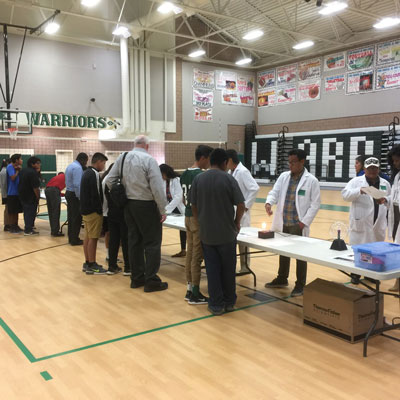 |
 |
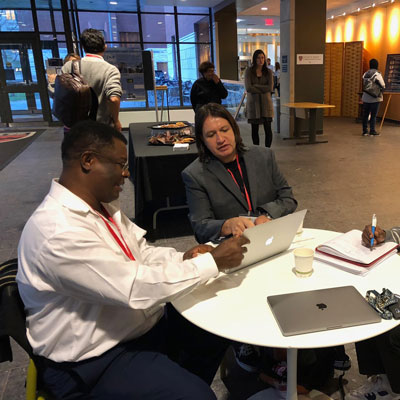 |
Projects
There are several ongoing projects between NTU and Harvard.
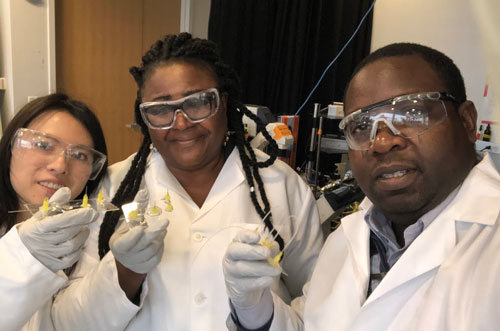 |
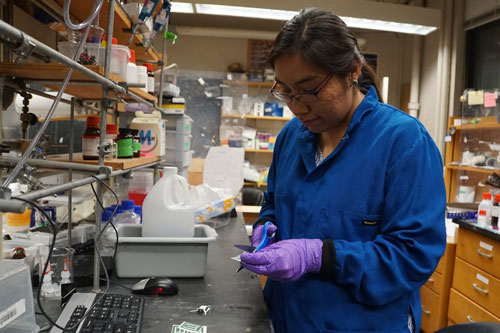 |
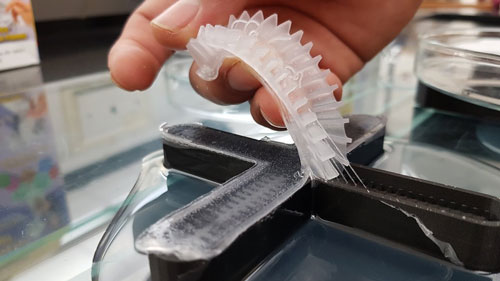 |
Navajo Technical University (NTU) is one of the premier institutions of higher education in the Navajo Nation, providing a unique balance among science, engineering, technology, tradition, and identity rooted in the Diné Philosophy of Education: Nitsahakees, Nahata, Iina, and Siihasin.
This project, the Vision for Excellence at NTU in Research and Education in STEM (VENTURES), is a partnership between NTU and the National Science Foundation funded Materials Research Science and Engineering Center (MRSEC) at Harvard University.
The goals of this partnership are to:
- increase the number of Native Americans earning undergraduate degrees in STEM fields,
- increase the research infrastructure at NTU so that students and faculty can perform research within their own community,
- increase the number of Native Americans entering and completing graduate programs in materials science and related fields, and
- include Native American perspectives and methods of inquiry in materials science research.
The two materials research areas in this award are relevant to health and environmental issues that are of immediate importance to the Navajo Nation.
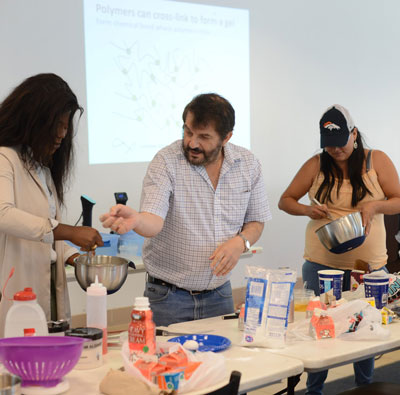 |
Research area 1 will focus on developing materials and techniques for the electrochemical detection of low concentrations of pollutants such as heavy metals and disease biomarkers such as glucose. This research area is motivated by the long history of uranium mining on the Navajo Nation, as well as more recent extraction activities, such as fracking. Low-cost electrochemical detection can also be used to monitor health issues like obesity and type 2 diabetes on the Navajo Nation. |
| Research area 2, which will study mechanical properties of cell membranes, will help to address a growing health concern for the Navajo people - a rising incidence of high cholesterol and associated coronary disease. Collaborative research teams in research area 1 will fabricate and test electrodes for detection of mining contaminants, and develop microfluidics-based laboratory models for flow and detection of contaminants through soil. Research area 2 will investigate the ability of phytosterols to act as cholesterol surrogates and how they modify the sterol profile of mammalian cell membranes, as well as examine the resulting membrane biophysical properties (using capillary microfluidic techniques). |
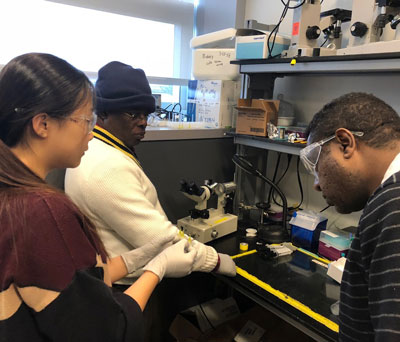 |
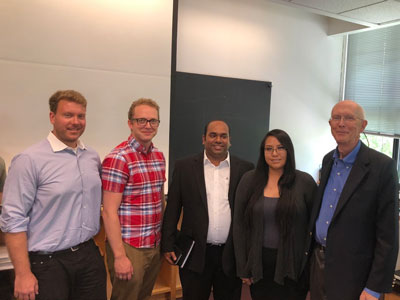 |
By linking each research area to an issue of concern to the Navajo people, this team will be able to achieve the objectives of increasing enrollment in STEM fields at NTU, and will inspire students to continue to graduate research in materials and related fields. In addition, the highly accessible research techniques can be readily adapted into courses at NTU and outreach activities to the Navajo Nation, incorporating cultural knowledge and practices. |
Welcome to Resources for Student Learning!
The resources here are designed to promote optimum student learning and development at NTU through planning, assessment, and reporting processes based on Diné Philosophy of Education, accreditation criteria, and best practices.
Program Assessment
Assessment is the process of establishing learning goals, providing learning opportunities, assessing student learning, and using results to implement improvements. The process is ongoing. It follows the logic of the Life Principles of Diné Philosophy of Education: Nitsáhákees (critical thinking), Nahat’á (planning), Iiná (implementation), and Sih Hasin (reflection). This takes place for every certificate and degree program.
Templates
- Student learning report
- Program course sequencing
- Program course planner
- Syllabus template (updated Oct 2023)
- Lesson plan
- Checklist rubric
- Descriptive rubric
Academic Prompts with Rubrics
- Algebra project
- Analyze data
- Apply new knowledge
- Creative writing
- Design solution
- Essay writing
- Function on team
- Lab writing
- Make informed judgement
- Oral presentation by group
- Research paper
- Resume
- Solve problem
Other Assessment Measures
- Professionalism Observation Assessment
- Teacher Candidate Self-Assessment (see p. 12 of apprenticeship packet)
General Education Assessment
Assessment of the GenEd program takes place one goal/semester at a time. Data summaries of direct and indirect measures are compiled on an annual basis by the University's Offices of Assessment and Institutional Research. An annual summary that includes recommendations for program improvement is prepared by the Student Learning Committee and included in the University's Annual Student Learning Report. Curriculum revisions as needed are designed by the Student Learning Committee and reviewed and approved by the Faculty Congress.
HLC GenEd Assessment Workshop 2021
NTU participated in a workshop sponsored by the Higher Learning Commission focused on improving GenEd assessment. The workshop took place in September and early October, 2021. Team members included Colleen Bowman, Kelly Chiquito, Bruce Lewis, Peter Moore, and Lola Natay. Workshop resources are posted below:
- Assessing Student Learning in General Education, Module 2. Susan Hatfield
- Assessing Student Learning in General Education, Module 3. Susan Hatfield
- Assessing Student Learning in General Education, Module 4. Susan Hatfield
New Mexico Higher Education Department Links
Arizona
Co-curricular Assessment
The goal of Co-Curricular Student Learning and Development at NTU is to provide value to Diné communities through research, community engagement, and service learning projects, and projects that foster cultural preservation, environmental sustainability, and economic development.
Co-Curricular activities are organized by faculty members as course assignments for course credit, and by faculty sponsors in student organizations. Projects require at least five hours of out-of-class participation and are assessed through a reflective essay or survey.
Students who complete an end-of-project survey do so using an online instrument. Data are organized by the Student Learning Coordinator. Copies of students’ reflective essays are submitted to the Student Learning Coordinator for program improvement analysis. The CCP is overseen and improved annually by NTU’s Student Learning Committee.
Assessment Reports
- Annual Student Learning Report 2021
- Annual Student Learning Report 2020
- Annual Student Learning Report 2019
- Annual Assessment Report: Fall 2017 – Spring 2018
- Annual Assessment Report: Fall 2016 – Spring 2017
- Annual Assessment Report: Fall 2015 – Spring 2016
- Annual Assessment Report: Fall 2014 – Spring 2015
Assessment Guides
Student Learning Committee
The Student Learning Committee consists of members of the Faculty Congress who represent the University's academic departments and campus locations. Members are self-nominated and affirmed by Faculty Congress leadership and academic administration.
SLC members in 2023-2024 include:
-
Prince Boahene (Chair)Dr. Irene AnyangweDr. Dianna Dekelaita-MulletShasha HanVirgil HouseChristine ReidheadDr. Franklin SageTsosie SchneiderDr. Frank StompDr. Siri TuttleDr. Casmir Agbaraji
Minutes
Student Learning Committee
Assessment Committee
Program Review
Purpose
The purpose of Program Review at Navajo Technical University is to promote systematic review and evaluation of academic programs. It is central to NTU's mission, planning, academic programming, and continuous improvement.
Focus
The Program Review Committee and Deans conduct a thorough Self-Study of each academic program every five years using the Program Review Process. The review focuses on the following:
- Curriculum
- Student data
- Program assessment and improvements
- Strengths and challenges
- Faculty
- Recognition
- Cost
Cycle
Each academic program is reviewed on a five-year cycle. The schedule is developed in consultation with Department Chairs and Deans. Under exceptional circumstances and with the approval of the Deans, a review may be extended or postponed. When possible, the schedule is coordinated with other review(s) and accreditation obligations.
Process
The Program Review process includes five steps: 1) Planning, 2) Self-Study, 3) Hearing, 4) Analysis of Findings, and 5) Recommendations to the President's Cabinet.
Planning. Program Review is initiated each academic year by the Deans. In the preceding spring semester, Department Chairs are reminded as to the programs scheduled for review in the subsequent year. Early in fall semester, for programs scheduled for review, chairs, program advisors, and faculty attend an orientation workshop.
Self-Study. A Self-Study is completed for each program that undergoes Program Review. A Self-Study Team consisting of Program Advisor(s) and Faculty is assigned by the appropriate Department Chair, who is ultimately responsible for the completion of each Self-Study under her or his purview. Self-Study Teams complete items assigned to them in the Program Review template; other items are completed by persons and offices as indicated in the template. Self-Studies must be completed by the end of fall semester.
The Program Review template is housed in NTU's Google Drive to allow for multiple authors to work on the report simultaneously.
Hearing. This is conducted by the Program Review Committee and scheduled and convened in spring semester by the Deans. Each Self-Study Team presents its findings to the University community.
Analysis of findings. The Program Review Committee produces a summary report that highlights the following:
- Recruitment and retention of faculty and students
- Graduation rates
- Programs quality
- Student learning assessment
- Teaching and academic outreach efforts of the faculty
- Fiscal efficacy
- Action plans
The summary report is responsive to other issues that come up in the course of the reviews. The Program Review Committee makes specific recommendations for improvement of the quality of programs reviewed, as well as identify those aspects of the programs that are exemplary.
Self-Study team members are surveyed at the conclusion of the Program Review process identify strengths, challenges, and opportunities for improving Program Review as a whole.
Report to the President's Cabinet. The final step in the Program Review process is the preparation of a summary report on the year’s Program Reviews for the President's Cabinet.
Program Review Guides
- Program Review Guide for 2023-24
- Program Review Guide for 2022-23
- Program Review Guide for 2021-22
- Program Review Guide for 2020-21
- Program Review Guide for 2019-20
- Program Review Guide for 2018-19
Summary Reports
- Summary Report for AY23
- Summary Report for AY22
- Summary Report for AY21
- Summary Report for AY20
- Summary Report for AY19
- Summary Report for AY18
Program Review Committee Members
PRC Meeting Minutes
| Meeting Date | File |
|---|---|
| February 2, 2024 | Download PDF |
| January 12, 2024 | Download PDF |
| September 3, 2023 | Download PDF |
| February 24, 2023 | Download PDF |
| February 3, 2023 | Download PDF |
| January 13, 2023 | Download PDF |
| December 2, 2022 | Download PDF |
| November 4, 2022 | Download PDF |
| April 4, 2022 | Download PDF |
| March 4, 2022 | Download PDF |
| February 18, 2022 | Download PDF |
| February 4, 2022 | Download PDF |
| January 14, 2022 | Download PDF |
| December 3, 2021 | Download PDF |
| November 4, 2021 | Download PDF |
| September 3, 2021 | Download PDF |
| August 20, 2021 | Download PDF |
Institutional Review Board (IRB)
Welcome to the Navajo Technical University research site for researchers. If you are a student about to embark on a research initiative, please read all of the following information so you can be well informed about your project.
- Have your faculty advisor review and approve your project
- Determine the type of review required: exempt, expedited or full review
- Download an Application for Research for your project.
- Complete the application and submit to a member of the IRB
- Use the application checklist below to insure your documents are complete before submission.
Application for Research
All applications should be in type-written form, written in non-technical terms, and response placed directly under each question. It is the investigator's responsibility to provide information about research procedures so that the CIR has a clear understanding of what the research entails. It is important that you answer every question to ensure that all of the necessary information is included in your application.
Data collection may not begin until researchers have received approval to conduct the research, and research related activity shall not continue beyond the date stated on the approval letter. Research projects involving human subjects can be approved for up to one year in accordance with Federal Regulations. A study is considered complete when data collection and data analysis are complete.
Application Checklist
The following is provided to assist you with your application. Be sure your completed application includes these documents:
- A title page with contact information for all investigators and sponsors.
- A completed application form that includes:
- - A description of any potential financial or professional interest by a funding source in the outcome of the research.
- - A description of the setting or location(s) of where the research will be conducted.
- - An estimate of how the amount of time that will be requested of each participant.
- - A description of any potential benefits to participants for participating in this research (including incentives of any type).
- - A description of instances in which participant confidentiality would be broken.
- - Disclosure of any additional or non-institutional funding sources.
- Attach letters of support or agreement showing permission to conduct research at this location.
- Copies of advertisements, recruitment letter(s), scripts, instructions given to participants.
- Forms that will be used: Informed Consent, Confidentiality Statement, and Project Renewal.
- Copies of surveys, instruments or measures, questionnaires, interview schedules, focus group questions, screening instruments, and/or other materials used to collect data.
- Certification of back-translation for any materials that were translated into a language other than English as well as copies of materials in that language.
- CV or bio sketch for Principal Investigator
- Submit two complete application packet to the Chair or Co-Chair of the CIR
Faculty Responsibility for Student Projects
All research involving human subjects conducted by students are to be supervised by a faculty member and be reviewed and approved by the Committee on Institution Research prior to initiation. Investigators may not solicit subject participation or begin data collection until they have received written approval from the CIR.
The faculty advisor has the responsibility for (1) making the decision whether student research activities involving human participants meet eligibility for CIR review; (2) overseeing all research related activities; and (3) assuring that ethical principles are adhered to in the conduct of the project.
An example: consider a student who undertakes an individual or class project that does not involve a vulnerable population and involves no risk to the subjects of the study. The student delivers a presentation on campus (e.g., poster or showcase session or an oral presentation before faculty and peers.) This project would not require CIR review. However, if the results of this otherwise "no or low-risk" project may/might be disseminated at a professional conference, submitted for publication, or published on the World Wide Web, government regulations require prior review by CIR.
Generally, student research involving human subjects falls into one of two categories, only one of which requires CIR Review:
Regulations:
Title 45 Code of Federal Regulations Part 46 (45 CFR 46) Protection of Human Subjects specifies federal regulations for the conduct of research involving human subjects. All human subjects research at Navajo Technical University must be conducted in accordance with 45CFR46. Regulations are available at http://www.hhs.gov/ohrp/humansubjects/guidance/45cfr46.html
(Ref: 21 CFR Part 312, 812, 45 CFR 46.101(b)(4), (b)(3), 45 CFR 46.402(a), 63 FR 60364-60367, November 9, 1998.)
IRB Members
- Dr. Jennifer Wheeler (Chair)
- Dr. Peter Romine
- Dr. Colleen Bowman
- Christine Reidhead
- Dr. Palmer Netongo
- Scott Halliday
- Sheena Begay
- Tomacita Grey
- Dr. Casmir Agbaraji
NTU is partnering with SUN PATH and WICHE ICE. This opportunity provides quality online course sharing that ensures our students access a variety of online courses to help them stay on track to graduate. The partnership offers NTU access to the many Higher Learning online courses within the State of New Mexico and the region. Vice-versa, other Universities and Colleges would be able to enroll in our online courses. This helps with articulation and course sharing, which will help in cost savings, and ensuring our students graduate on time. All SUN ONLINE courses are Quality Matters (QM) certified which means NTU plans to offer QM certified courses as well. This is a huge advantage and opportunity for NTU.

SUN PATH is a consortium of New Mexico public colleges sharing quality online courses to ensure that students have access to a variety of courses, certificates, and degree programs. We are dedicated to excellence in online learning and professional development for faculty who teach online and committed to increasing access to quality online education for students across New Mexico.

WICHE ICE enables students, through their home institutions, to seamlessly access high quality online courses and programs offered by other four-year and two-year ICE member institutions. The collaborative model fosters faculty engagement, resource sharing, and innovation.
NEW MEXICO SUN ONLINE powered by WICHE ICE: Online Course Sharing System
SUN Online is a coursesharing statewide system that provides New Mexico students, from participating colleges and universities, to have greater access to quality online courses and programs across the state.
Through this system students have the opportunity to take classes from other institutions in the state that articulate their programs of study, while remaining enrolled in their home institution.
Colleges benefit with less duplication of courses, resources and programs and employers benefit with increased responsiveness and reduced time-to-market for local and regional training needs.
An online course catalogue with all courses shared by participating institutions can be accessed at http://www.wiche-ice.org.
For more information contact Coleen Arviso at ccarviso@navajotech.edu.
Navajo Technical University's (NTU) Adult Education Program offers classes and tutoring to help adult learners to build basic academic skills to prepare to take GED test to attain a high school equivalency diploma. The Program also provides students evidence of readiness to enter job training programs or college. The NTU ABE/GED Program mission statement is "Adult Basic Education is committed to adult learners to enter higher levels of self-reliance and employment opportunities. With the knowledge obtained, adult students will exercise choices and options with effective and productive lifestyles based on Diné cultural principles: Nitsáhákees, Nahat'á, Iiná, and Sihasin."
The NTU ABE/GED Program complies with the State of New Mexico GED requirements including:
- Must be 16 or 17 years of age if you meet the following expectations:
- Obtain and submit a permission form with consent from local school District as well as from parents or guardian. One does not need to live in New Mexico to take the GED test with the Program.
- Must complete the pre-post tests and practice test after spending a certain amount of prescribed time required by the Program
- The Program does not require that a student takes a GED Practice Test prior to taking an Official GED Test, however, it is recommended that a Practice Test be taken to ensure preparedness and readiness to take the Official Test.
The New GED 2014 Testing started in January 2014, and administered on computers call Computer Based Testing (CBT). The new generation of testing will be harder to pass and will include four components and will require all candidates to improve or develop their basic computer literacy skills. Four (4) subjects in the New GED Test are:
- Reading, Language, Arts (RLA) — (150 minutes)
Writing and Reading are combined as RLA. - Mathematical Reasoning — (120 minutes)
- Science — (90 minutes)
- Social Studies — (95 minutes)
Students must register to schedule to test which will require mandatory GED Orientation scheduled by the Program Instructors. Students will schedule testing when referred by the Instructor.
All prior ABE/GED Program testing scores and records were erased during November 2013, and cannot be used as credit toward your diploma.
Guidance & Intervention Committee
Wanda Cooke (Chair)
Brian Tatsukawa
Lupita Chicag
Robert Chase
Graduate Curriculum Committee
General Education Committee
Dr. Peter Moore (Chair)
Alex Tallant
Juanita Francis
Dr. Palmer Netongo
Dr. Reynelle Lowsayatee
Faculty Promotion Appeal Committee
Palmer Netongo (Chair)
Dr. Frank Stomp
Dr. Irene Ane-Anyangue
Dr. Osama Fakron
Academic Excellence Committee
Brian Connolly (Chair)
Dr. Dianna Dekelaita-Mullet
Dr. Olanrewaju Johnson
Walter Cloud
Sheila Begay
Jose Vanguardia
Melvina Jones
Online Education Committee
Dr. Coleen Arviso (Chair)
Shasha Han
Sumathi Ragavanentham
Mark Trebian
Dr. Rick Rochester
Tilda Harrison-Woody
Program Review Committee
Student Learning Committee
Undergraduate Curriculum Committee
Nancy Goodwin (Co-Chair)
Sasha Han (Co-Chair)
Sundaram Arumugam
Dr. Abraham Meles
Mohamed Illafe
Julie Bales
Darrick Lee
Nsalambi Nkongolo
Institutional Review Board (IRB)
Dr. Peter Romine (Co-Chair)
Scott Halliday (Co-Chair)
Dr. Colleen Bowman
Dr. Jennifer Wheeler
Christine Reidhead
Dr. Palmer Netongo
Sheena Begay
Dr. Franklin Sage
Tomacita Grey
Dr. Casmir Agbaraji
ABET Accreditation Committee Members for the 2022-2023 Academic Year
Dr. Peter Romine
Dr. Sundaram Arumugam
Dr. Arup Dey
Dr. Monsuru Ramoni
Dr. Ragavanantham Shanmugam
Dr. Osama Fakron
Dr. Gholam Ehteshami
Juanita Francis
Dr. Olanrewaju Johnson
Anusuya Velligiri
Tsosie Schneider
Dr. Frank Stomp
Scott Halliday
Dr. Casmir I. Agbaraji (Chairperson)
NTU Department Chairs for 2022-2023 Academic Year
The Electrical Engineering (B.S.) Program is accredited by the Engineering Accreditation Commission of ABET, https://www.abet.org, under the General Criteria and the Electrical, Computer, Communications, Telecommunication(s) and Similarly Named Engineering Programs Program Criteria.
http://www.navajotech.edu/academics/bachelor-of-science/electrical-engineering
The Industrial Engineering (B.S.) Program is accredited by the Engineering Accreditation Commission of ABET, https://www.abet.org, under the General Criteria and the Industrial and Similarly Named Engineering Programs Program Criteria.
http://www.navajotech.edu/academics/bachelor-of-science/industrial-engineering
Associate of Chemical Engineering Technology Total Headcount Enrollment Fall 2016 to Spring 2021
Associate of Engineering Technology Total Headcount Enrollment Spring 2018 to Spring 2021
Bachelor of Advanced Manufacuturing Technology Total Headcount Enrollment Spring 2017 to Spring 2021
Bachelor of Information Technology Total Headcount Enrollment Fall 2012 to Spring 2021
ABET Programs Conferred Graduates at NTU Fall 2016 - Spring 2021
Combined Program Enrollment at NTU for ABET Programs
ABET Enrollment by Program at NTU Fall 2016 - Spring 2021
Engineering Accreditation Commission (EAC)
Program Educational Objectives (PEOs) for a Bachelor of Science Degree in Electrical Engineering (EE), Environmental Engineering (ENVE), Industrial Engineering (IE), and Mechanical Engineering (ME)
The Navajo Technical University (NTU) engineering alumni will show that they meet expectations by performing within one or more of these parameters in five to seven years after graduation:
- Show progress in their career through greater supervisory tasks, advancing to larger managerial responsibility or increasing technical accountability.
- Acquire professional engineer’s license, other certifications of expertise in technical areas or attend graduate school in an appropriate technical discipline.
- Demonstrate success by continuing employment and/or technical accomplishments as entrepreneurs, civil servants or in commercial or industrial endeavors.
Student Learning Outcomes (SLOs) for a Bachelor of Science Degree in EE, ENVE, IE, and ME
Student Learning Outcomes (SLOs) demonstrate what students are expected to know at the time of graduation.
- an ability to identify, formulate, and solve complex engineering problems by applying principles of engineering, science, and mathematics
- an ability to apply engineering design to produce solutions that meet specified needs with consideration of public health, safety, and welfare, as well as global, cultural, social, environmental, and economic factors
- an ability to communicate effectively with a range of audiences
- an ability to recognize ethical and professional responsibilities in engineering situations and make informed judgments, which must consider the impact of engineering solutions in global, economic, environmental, and societal contexts
- an ability to function effectively on a team whose members together provide leadership, create a collaborative and inclusive environment, establish goals, plan tasks, and meet objectives
- an ability to develop and conduct appropriate experimentation, analyze and interpret data, and use engineering judgment to draw conclusions
- an ability to acquire and apply new knowledge as needed, using appropriate learning strategies
ABET Self-Study Report for the Industrial Engineering Program at NTU
ABET Self-Study Report for the Electrical Engineering Program at NTU
Engineering Technology Accreditation Commission (ETAC)
Program Educational Objectives (PEOs) for an Associate of Applied of Science Degree in Engineering Technology (Chemical Engineering Technology and Engineering Technology)
The Navajo Technical University (NTU) engineering technology alumni will show that they meet expectations by performing within one or more of these parameters in five to seven years after graduation:
- Show progress in their career through greater supervisory tasks or increasing technical accountability.
- Acquire certifications of expertise in technical areas or continue education in an appropriate technical discipline.
- Demonstrate success by continuing employment and/or technical accomplishments as entrepreneurs, civil servants or in commercial or industrial endeavors.
Student Learning Outcomes (SLOs) for an Associate of Applied Science Degree in Chemical Engineering Technology and Engineering Technology
Student Learning Outcomes (SLOs) demonstrate what students are expected to know at the time of graduation.
- an ability to apply knowledge, techniques, skills and modern tools of mathematics, science, engineering, and technology to solve well-defined engineering problems appropriate to the discipline;
- an ability to design solutions for well-defined technical problems and assist with the engineering design of systems, components, or processes appropriate to the discipline;
- an ability to apply written, oral, and graphical communication in well-defined technical and non-technical environments; and an ability to identify and use appropriate technical literature
- an ability to conduct standard tests, measurements, and experiments and to analyze and interpret the results; and
- an ability to function effectively as a member of a technical team.
Program Educational Objectives (PEOs) for a Bachelor of Applied Science Degree in Advanced Manufacturing Engineering Technology
The Navajo Technical University (NTU) engineering technology alumni will show that they meet expectations by performing within one or more of these parameters in five to seven years after graduation:
- Show progress in their career through greater supervisory tasks or increasing technical accountability.
- Acquire professional engineer’s license, other certifications of expertise in technical areas or attend graduate school in an appropriate technical discipline.
- Demonstrate success by continuing employment and/or technical accomplishments as entrepreneurs, civil servants or in commercial or industrial endeavors.
Student Learning Outcomes (SLOs) for a Bachelor of Applied Science Degree in Advanced Manufacturing Engineering Technology
- an ability to apply knowledge, techniques, skills and modern tools of mathematics, science, engineering, and technology to solve broadly-defined engineering problems appropriate to the discipline;
- an ability to design systems, components, or processes meeting specified needs for broadly-defined engineering problems appropriate to the discipline;
- an ability to apply written, oral, and graphical communication in broadly-defined technical and non-technical environments; and an ability to identify and use appropriate technical literature;
- an ability to conduct standard tests, measurements, and experiments and to analyze and interpret the results to improve processes; and
- an ability to function effectively as a member as well as a leader on technical teams.
Computing Accreditation Commission (CAC)
Program Educational Objectives (PEOs) for a Bachelor of Applied Science Degree in Information Technology (IT)
The Navajo Technical University (NTU) Information Technology alumni will show that they meet expectations by performing within one or more of these parameters in five to seven years after graduation:
- Show progress in their career through greater supervisory tasks or increasing technical accountability.
- Acquire certifications of expertise in technical areas or attend graduate school in an appropriate technical discipline.
- Demonstrate success by continuing employment and/or technical accomplishments as entrepreneurs, civil servants or in commercial or industrial endeavors.
Student Learning Outcomes (SLOs) for a Bachelor of Applied Science Degree in Information Technology
Student Learning Outcomes (SLOs) demonstrate what students are expected to know at the time of graduation.
- Analyze a complex computing problem and to apply principles of computing and other relevant disciplines to identify solutions.
- Design, implement, and evaluate a computing-based solution to meet a given set of computing requirements in the context of the program’s discipline.
- Communicate effectively in a variety of professional contexts.
- Recognize professional responsibilities and make informed judgments in computing practice based on legal and ethical principles.
- Function effectively as a member or leader of a team engaged in activities appropriate to the program’s discipline.
- Use systemic approaches to select, develop, apply, integrate, and administer secure computing technologies to accomplish user goals.
Computing Accreditation Commission (CAC)
Program Educational Objectives (PEOs) for a Bachelor of Science Degree in Computer Science
The Navajo Technical University (NTU) Computer Science alumni will show that they meet expectations by performing within one or more of these parameters in five to seven years after graduation:
- Show progress in their career through greater supervisory tasks or increasing technical accountability.
- Acquire certifications of expertise in technical areas or attend graduate school in an appropriate technical discipline.
- Demonstrate success by continuing employment and/or technical accomplishments as entrepreneurs, civil servants or in commercial or industrial endeavors.
Student Learning Outcomes (SLOs) for a Bachelor of Science Degree in Computer Science
Student Learning Outcomes (SLOs) demonstrate what students are expected to know at the time of graduation.
- Analyze a complex computing problem and to apply principles of computing and other relevant disciplines to identify solutions.
- Design, implement, and evaluate a computing-based solution to meet a given set of computing requirements in the context of the program’s discipline.
- Communicate effectively in a variety of professional contexts.
- Recognize professional responsibilities and make informed judgments in computing practice based on legal and ethical principles.
- Function effectively as a member or leader of a team engaged in activities appropriate to the program’s discipline.
- Apply computer science theory and software development fundamentals to produce computing-based solutions
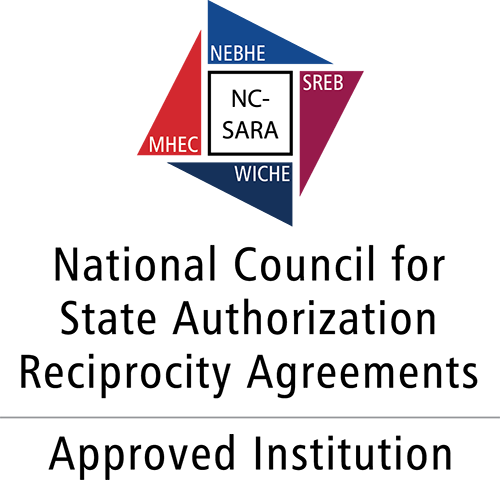
Navajo Technical University (NTU) is pleased to share as of June 7, 2017, we've been approved by New Mexico Higher Education Department (NMHED) to participate in the National Council for State Authorization Reciprocity Agreements (NC-SARA). We are the first Tribal University/College to become members of SARA.
Institutions that are members of SARA are authorized to provide online education to students from all SARA member states, currently 43 states and the District of Columbia are members. States and institutions that choose to become members of SARA operate under a set of policies and standards that are overseen by the National Council for State Authorization Reciprocity Agreements (NC-SARA) and administered by four regional higher education compacts.
SARA is intended to make it easier for students to take online courses in member states regardless of where the students live and the institution is located. As a State Authorization Reciprocity Agreement participant, NTU will comply with the following provisions developed by the Council:
- Online learning is appropriate to the institution’s mission and purposes.
- The institution’s plans for developing, sustaining, and, if appropriate, expanding online learning offerings are integrated into its regular planning and evaluation processes.
- Online learning is incorporated into the institution’s systems of governance and academic oversight.
- Curricula for the institution’s online learning offerings are coherent, cohesive, and comparable in academic rigor to programs offered in traditional instructional formats.
- The institution evaluates the effectiveness of its online learning offerings, including the extent to which the online learning goals are achieved, and uses the results of its evaluations to enhance the attainment of the goals.
- Faculty responsible for delivering the online learning curricula and evaluating the students’ success in achieving the online learning goals are appropriately qualified and effectively supported.
- The institution provides effective student and academic services to support students enrolled in online learning offerings.
- The institution provides sufficient resources to support and, if appropriate, expand its online learning offerings.
- The institution assures the integrity of its online offerings.
For more information about the SARA initiative and the progrees of state and institutional membership, please visit http://nc-sara.org/sara-states-institutions.
Complaint Resolution – If a student would like to discuss a concern or complaint s/he is encouraged to follow NTU's resolution process as described at our Student E-Learning Policy or Online Student Complaint Procedure if the complaint is not met with satisfaction, a student may file a complaint with the New Mexico Higher Education Department (the SARA Portal Entity for New Mexico). Additional information about the New Mexico Higher Education Department’s complaint process can be found at https://hed.nm.gov/students-parents/nc-sara.
Online Complaint Form Professional Licensure Disclosure
Program Advisors for the 2023-2024 Academic Year
| Programs | Advisors | Location | |
| 1 | Accounting | Tilda Woody | TECH 321 |
| 2 | Advanced Manufacturing Engineering Technology (AMET) | Dr. Tarique Khan | TECH 325 |
| 3 | Administrative Office Specialist | Phillip Quink | TECH 316 |
| 4 | Animal Science | Dr. Germaine Daye | Veterinary Clinic |
| 5 | Automotive Technology | Venon Upshaw | Trades Building |
| 6 | Biology | Dr. Irene Ane-Anyangwe/Dr. Palmer Netongo | Wet Lab 109 |
| 7 | Building Information Modeling (BIM) | Anusuya Vellingiri | TECH 323 |
| 8 | Business Administration | Christine Reidhead | TECH 316 |
| 9 | Construction Technology | Tom Bebo/Jones Lee | Trades Building/Chinle/Law Advocate Building |
| 10 | Chemical Engineering | Dr. Gholam Ehteshami | TECH 312 |
| 11 | Chemistry | Dr. Thiagarajan Soundappan | Wet Lab 114 |
| 12 | Commercial Driver License (CDL)/Heavy Equipment Operator | Collins Woody/Jerrison Jumbo | CDL, MT1/ Chinle Site |
| 13 | Computer Science | Dr. Frank Stomp/Dr. Bhagya Patil | MOD 10 |
| 14 | Counseling | Dr. Dianna Dekelaita-Mullet/Nancy Goodwin | MOD 8/MOD 14 |
| 15 | Creative Writing | Dr. Jennifer Wheeler/Anita Roastingear | MOD8/MOD 14 |
| 16 | Criminal Justice | Jennifer Henry, J.D. | Chinle Site |
| 17 | Culinary Arts | Robert Witte/Brian Tatsukawa | Hospitality Center |
| 18 | Cybersecurity | Dr. Mahmoud Darwish | |
| 19 | Diné Culture, Language & Leadership (B.A.) | Dr. Franklin Sage/Dr. Siri Tuttle | MOD 32 |
| 20 | Diné Culture, Language & Leadership (M.A.) | MOD 32 | |
| 21 | Early Childhood Multicultural Education | Cheryl Tom/ Dr. Suneetha de Silva | Chinle Site/Crownpoint |
| 22 | Electrical Trades | Virgil House | Trades Building |
| 23 | Electrical Engineering (EE) | Dr. Peter Romine/Dr. Sundaram Arumugam | MOD 16/TECH 325 |
| 24 | Energy Systems | Darrick Lee | MOD 2 |
| 25 | Engineering Technician | Dr. Monsuru Ramoni/Dr. Arup Dey | TECH 322 |
| 26 | Environmental Engineering (ENVE) | Dr. Olanrewaju Johnson/Dr. Juanita Francis | MOD 7/MOD 21 |
| 27 | Engineering Technology | Dr. Md. Mahbubar Rahman/Dr. Osama Fakron | TECH 325 |
| 28 | Environmental Science (ENV) | Steven Chischilly/Dr. Abhishek Roychowdhury | TECH 301 |
| 29 | General Studies | Brian Connolly | MOD 15 |
| 30 | Geographic Information Technology (GIT) | Dr. Nsalambi Nkongolo | TECH 325 |
| 31 | Geology | Dr. Olanrewaju Johnson | MOD 7 |
| 32 | Hotel and Restaurant Administration | Brian Tatsukawa | Hospitality Center |
| 33 | Industrial Engineering (IE) | Dr. Ramoni Monsuru/Dr. Arup Dey | TECH 322/323 |
| 34 | Industrial Maintenance & Operations | Dr. Ramoni Monsuru/Dr. Arup Dey | TECH 322/323 |
| 35 | Information Technology (IT) | Mark Trebian/Tsosie Schneider/Duwayne Thomas | Law Advocate Building/Chinle |
| 36 | Law Advocate/Legal Assistant | Robert Yazzie, J.D./Sidner Larson, J.D./Lola Notay, J.D. | Law Advocate Building/Chinle Site |
| 37 | Law Enforcement | Chinle Site | |
| 38 | Mathematics | Dr. Carlos Paez-Paez/Shasha Han/Mohamed Illafe/Dr. Abdulmtalb Hussen | MOD 9/Law Advocate Building |
| 39 | Mechanical Engineering (ME) | Dr. Tarique Khan | TECH 325 |
| 40 | New Media | Aanor Louis | TECH 333 |
| 41 | Nursing Assistant | Rachel Pacheco | Nursing Building/Chinle |
| 42 | Nursing (RN) | Dr. Michelle Kahn-John/Dr. Christopher Young | Nursing Building |
| 43 | Plumbing | Lorenzo Gurule | Kirtland Site |
| 44 | Professional Baking | Walter Cloud/Melvina Jones | Hospitality Center |
| 45 | Public Administration | Douglas Capitan | TECH 316 |
| 46 | Veterinary Technology | Dr. Germaine Daye/Krystal Louis | Veterinary Clinic |
| 47 | Welding | Christopher Storer/Francis Noble/Lorenzo Gurule/Christopher Panigeo | Crownpoint Trades Building/kirtland Site/Teec Site |
Online Program Advisors for 2023-2024
| Programs | Advisors | Location | |
| 1 | Accounting | Tilda Woody | TECH 321 |
| 2 | Counseling (certificate & Associate) | Dr. Dianna Dekelaita-Mullet/Nancy Goodwin | MOD 8/Library |
| 3 | Business Administration | Christine Reidhead | TECH 316 |
| 4 | General Studies | Brian Connolly | MOD 15 |
| 5 | Mathematics | Shasha Han | MOD 9 |
| 6 | Management Information Systems (MIS) | Dr. Frances Ijeoma | Online: Blackboard/Zoom |
| 7 | Public Administration | Douglas Capitan | TECH 316 |
| 8 | Diné Culture and Language Sustainability (Ph.D.) | Dr. Franklin Sage/Dr. Siri Tuttle | MOD 32 |


